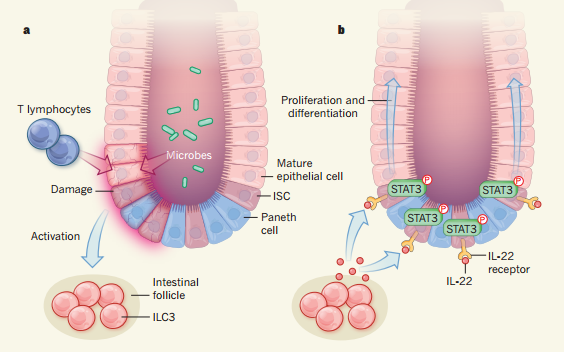New Study that Mimics The Fasting Process to Help Regenerate Stem Cells in The Intestine
24-hour fasting can help keep intestinal stem cells young and vibrant. Recently, biologists at the Massachusetts Institute of Technology (MIT) have discovered ways to regenerate these stem cells and created a molecule that mimics the fasting process. In the near future, we will be able to maintain the vitality of stem cells without fasting, related research was published in Cell Stem Cell on May 3. Intestinal stem cells are the source of all new intestinal cells in the intestine. Therefore, intestinal stem cells are very important for the cure of the disease in the event of injury or infection. It maintains the inner wall of the intestine, which usually will be updated every five days, however, with age increasing, stem cells will gradually decrease, and the recovery time will become longer. The 24-hour fasting can rejuvenate the stem cells of aging and young mice. Researchers extracted intestinal stem cells from fasted mice and cultured them to verify whether they could form mini-intestinal organs. If so, then showing that the regeneration of stem cells is even stronger. It was finally found that enteric stem cells from fasted mice had twice as much regeneration capacity as those of non-fasted mice. The lead author, postdoctoral researcher Maria Mihaylova of the Whitehead Institute, claiming that ‘Obviously, fasting has a significant effect on the ability of intestinal crypts to generate organs, and this ability is driven by stem cells. We have observed this phenomenon in both young mice and aging mice, and would like to understand the molecular mechanism behind this.’ Fasted mice switched from normal metabolic patterns (burning glucose and other carbohydrates) to metabolic fatty acids. Activation of the transcription factor called PPAR is responsible for this shift. When the pathway is closed, fasting has no effect on stem cell regeneration. David Sabatini, professor of biology at the Whitehead Institute, is the corresponding author of the study said that ‘This study provides evidence that fasting changes the metabolism of gut stem cells from carbohydrates to fats. Interestingly, the function of these cells is significantly enhanced after conversion to fatty acid oxidation, and drugs targeting this pathway may be new therapeutic approaches to improve tissue homeostasis in diseases associated with aging.’ Researchers have created a molecule that mimics the role of these transcription factors with this pathway, which means that it is possible to develop drugs for elderly patients that help them to regenerate their bowels. This treatment is particularly useful for elderly cancer patients who are recovering from infection or receiving chemotherapy because it is much easier than insisting on 24 hours of fasting. Furthermore, the researchers will test the effectiveness of this therapy and determine whether fasting has the same beneficial effect on other types of stem cells.


Your email address will not be published. Required fields are marked *